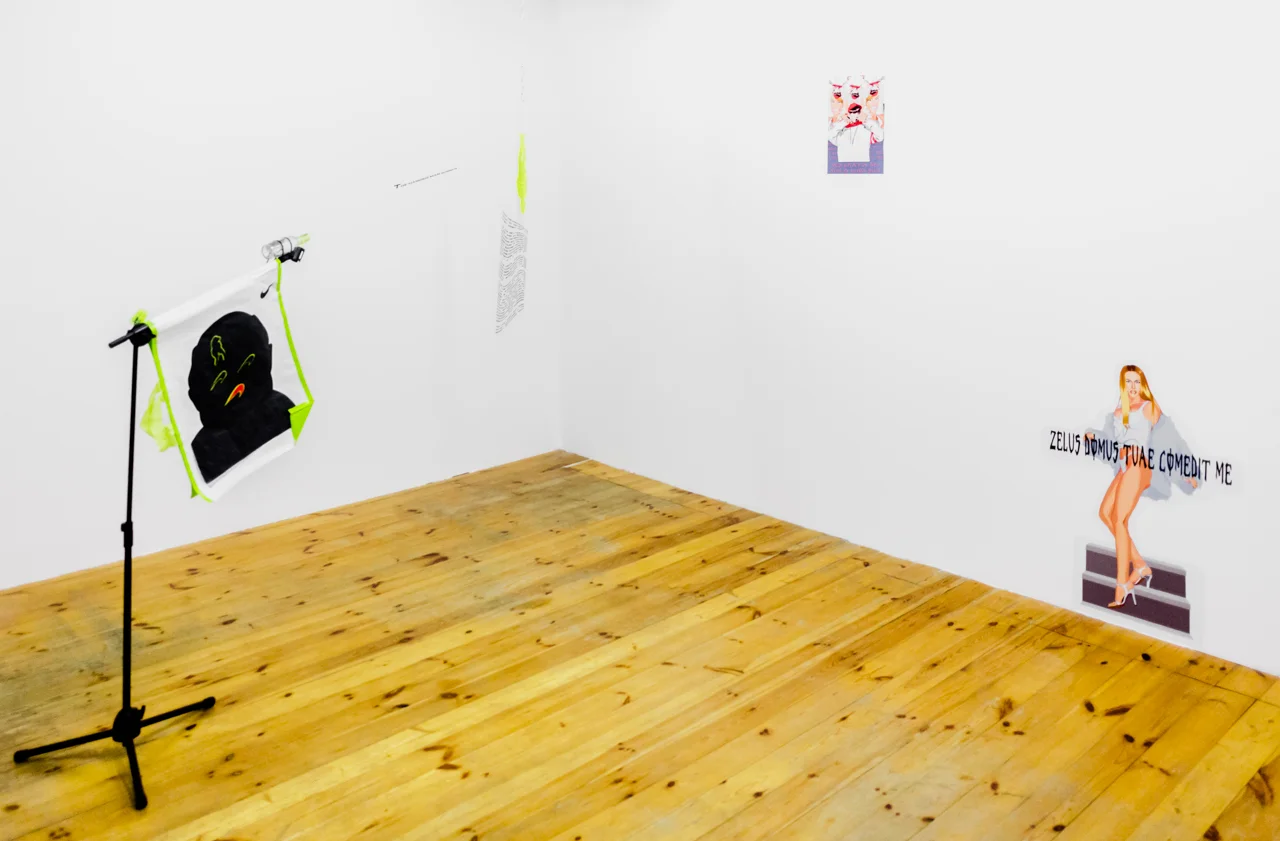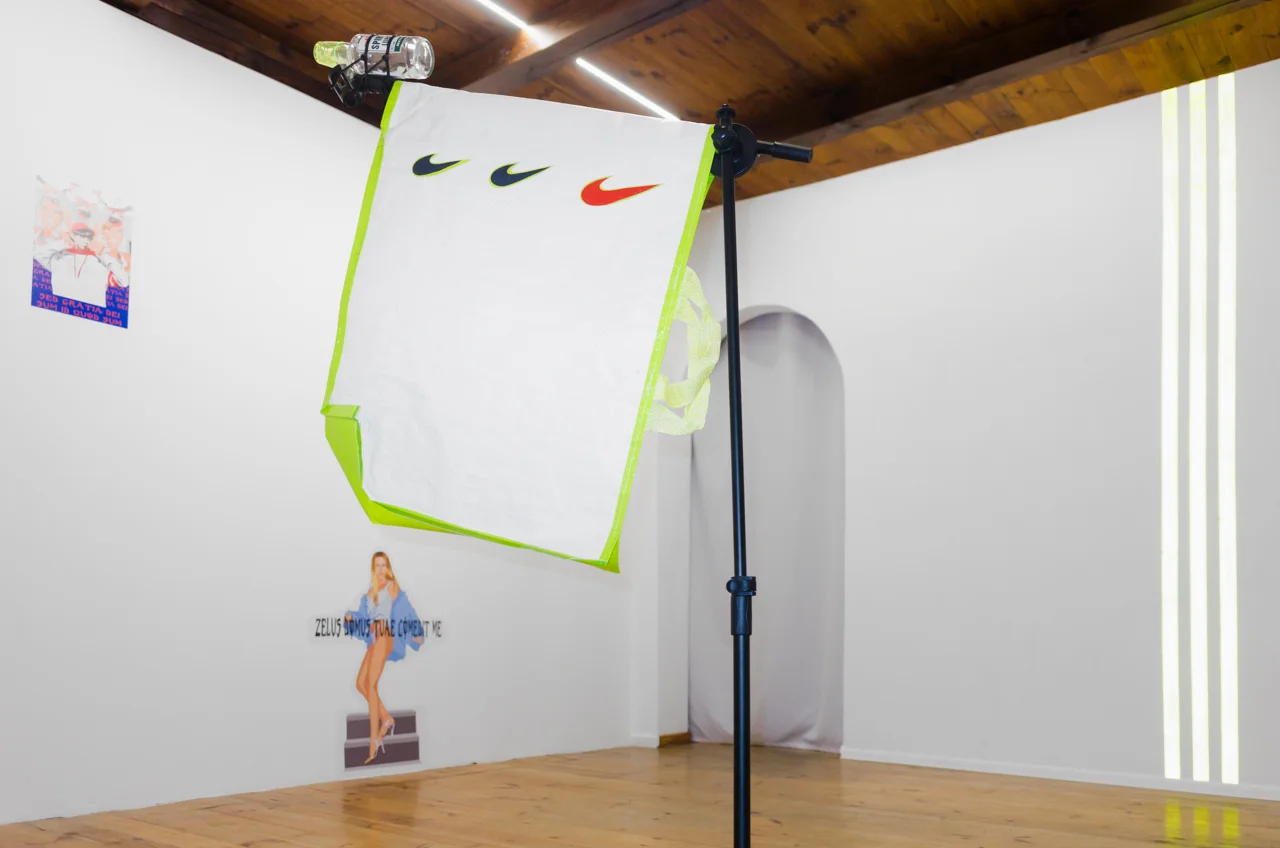Week 88_ Śmierć Człowieka
DISCOCAPITALISM - Princ Polo, Aleksandra Koper
07.10.2017
Curator: Kamil #2
Death of a Man Gallery
Śmierć Człowieka Gallery (Death of a Man Gallery) presents a collaborative show between two artists - Princ Polo and Aleksandra Koper.
The exhibition, titled DISCOCAPITALISM, is focused on the topic of consumerism and youth culture in Eastern Europe after the fall of Soviet Union. In the context of everyday life, it discusses the idea of the American dream and its repercussions through the eyes of the current generation. While analysing that matter though it is devoid of typical socially engaged undertones, instead it freely plays with online language and aesthetics. The whole setup reminds of a picture stream from Tumblr or memes that were floating around the web recently. It is bright and fast, just like the reality it describes, with the saddening message hidden somewhere behind the attractive facade.
Discocapitalism as a term could describe a type of newly founded system that focuses on pleasure, where people are desperate to make up for the lost years of being at the bottom. But the result is far from glamorous. The dream of a luxurious uptown party is met with
the reality of a small town disco taking place in a rundown.
The central installation titled ‘Singing foreign songs from playback’ by Princ Polo is a mic stand with an attached picture of Mikhail Gorbachev made of a cheap shopping bag and an empty bottle of vodka instead of a microphone. It echoes the stereotype of a Slav as a depressed alcoholic but at the same time shows how powerless people were while faced with a new reality and how they didn't
give a voice to a society built on foreign values.
Another piece by Princ Polo, ‘Hang in there’, consists of a worker-figure hanging upside down that is accompanied with three empty glasses and a text from a reading of a tarot card The Hanged Man. The meaning behind this card is that now is the time when no matter what we try to do, it just doesn’t work out. Any struggle at this time is futile and it is best to surrender. This depressing prophecy relates to a common sentiment towards a system that promised freedom in shaping your own destiny yet somehow failed to deliver.
In addition to those two works, there are three stripes plastered to the wall of a gallery. They are made of a reflective tape used by truckers to mark their cars so they will be visible on the road at night. The three stripes hold a special meaning in ex-communist countries - for a long time they have been a symbol of luxury, associated with people who managed to advance to a business class of life. Because apparently there were few that made it.
The second artist taking part in the exhibition, Aleksandra Koper, uses Melania Trump’s public image to illustrate that undying hope of social advancement which is still strong in the former eastern bloc. Mrs Trump’s recent visit to Poland ahead of a G20 summit in Hamburg caused a huge hype in polish media. It came to the point where tabloids started comparing US First Lady with her polish counterpart Agata Dudek, wondering whether the latter is copying the former. Melania was presented here as the example that should be followed. The rest of the world may wonder why, but for Eastern Europeans, this Slovenian model turned billionaire’s wife turned FLOTUS personifies the dazzling success that capitalism had so soundly advertised.
Koper chose two press photos of Melania and turned them into pixel drawings which took final form of stickers, resembling what could be found in a teenage girl’s room. On each one of them, Mrs Trump is shown in an exemplary female role - a beautiful bride and a glamorous model in a skimpy outfit. Both images are finished with quotes from Dante’s Comedia - “But by the Grace of God I am what I am" and ”The zeal of thy House hath eaten me up" - which seems almost like slogans for Melania Trump’s success.
Invited artists are dealing with the topic from two opposite sides. Or at least so it seems at the beginning because, in the end, it appears that post-soviet societies, even after twentysomething years still can’t find their way around the capitalist economy.






















